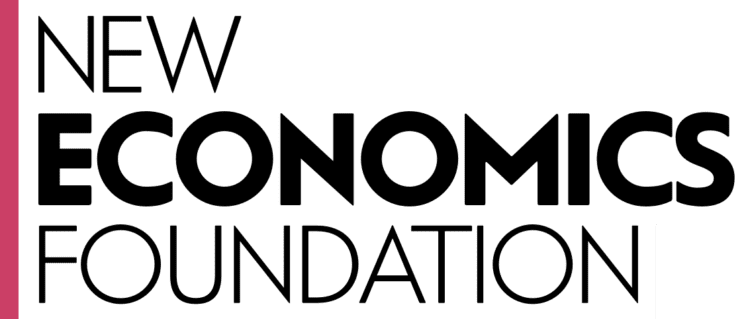NEF Consulting runs online and in-person training for groups on Theory of Change, as well as facilitation and consultancy support. See below for more information on our training, or click here to learn about other support on Theory of Change, but please contact us if you’d like to discuss options.
A Theory of Change (ToC) is a powerful tool that helps organisations and initiatives plan how they will create change, assess their effectiveness and communicate to stakeholders. It is used widely by charities, social enterprises, the public sector and even by mainstream businesses who are recognising its potential.
A Theory of Change is normally depicted as a map, or a journey, linking the activities of a programme, intervention or organisation to the short-term, medium-term and long-term outcomes experienced by stakeholders. It is a living diagram and narrative that should be updated as the work of the organisation changes.
Using qualitative approaches to gain an intimate understanding of how an intervention impacts on the lives of those affected leads to better quantitative analysis and modelling at later stages of an SROI analysis. Before you can start to value, you need data on outcomes; and before you collect data on outcomes, you need to make sure you are measuring the appropriate outcomes. A strong Theory of Change helps make SROI modelling easier, communicating potential impact considerations such as deadweight and attribution.
We can run the training on a date that suits your group. See below for details and contact us to discuss your needs.
For more about the Theory of Change process click here
AN INTRODUCTION TO CREATING A THEORY OF CHANGE
Group training workshops
NEF has developed proven templates to run storyboard exercises in workshops and focus groups in a range of settings, gathering data directly from service users. NEF Consulting has constructed theories of change for a range of programmes. We have found that the best evaluations, including SROIs, are underpinned by strong theories of change developed early in the research process, so would recommend this approach to anyone starting a new social impact project.
In our group training workshops, we explore what a theory of change is, how to construct one and best practice in conducting robust qualitative research.
We usually limit numbers in the workshop to a maximum of 12 participants.
The in-person training is held at your venue on one day. The online training is usually split over two consecutive days.
TOPICS COVERED INCLUDE
- The big picture: theory of change and its role in strategic planning and evaluation.
- Talking in outcomes: theory of change and other impact formats
- Collecting theory of change data: engaging with stakeholders
- Using the theory of change framework
- Next steps: planning, verifying and communicating findings.
WHAT YOU WILL LEARN
By the end of the course, the group will:
- Be able to describe a theory of change and when it is appropriate to use it.
- Understand what an outcome is and describe the similarities and differences between a theory of change and a logic model or impact map.
- Feel able to design a process and discussion guide for engaging with stakeholders.
- Feel confident using the component parts of a theory of change and to communicate their strategic value.
- Find a personal approach to visualising and describing a theory of change.
- Plan for how you will test and communicate your theory of change.
WHO WILL BENEFIT FROM THIS TRAINING
Any organisation or group looking to bring the strategic lens of theory of change to their planning or evaluation.
As this is an introductory workshop, you will not work on your own theory of change during the workshop but there is an opportunity to ask questions relating to your organisation. You can suggest a live project as an example for the exercise.
FEEDBACK FROM PARTICIPANTS
Workshops delivered for Calderdale Council (2025) and for Newcastle University (2024)
What is the one big thing you’ve learned from today that you’ll take back to your workplace?
“The preference of how information is presented varies greatly between people, and to keep this in mind when consulting with stakeholders.”
“That the theory of change model can be used as a basis for planning projects and even if I don’t do a full ‘Theory of change’ for the project, I can use the building blocks of enablers, preventers, assumptions etc. to think about the full picture of a project from the beginning and how it intersects and feeds into other teams work.”
“The importance of clearly mapping assumptions and understanding the causal pathways in complex systems.”
“Frameworks and approaches for structuring evaluations of projects/ strategies.”
“The Theory of Change can be used and applied beneficially in many different situations.”
Other feedback on recent Theory of Change training:
“Really enjoyed meeting Anke, she had a very engaging presenting style and made everyone feel involved and relaxed from the start.”
“I thoroughly enjoyed all aspects of the day.”
“Anke was really engaging, kept the pace of the day well and facilitated great discussions.”
“Thanks for your thoughtful, patient explanations and your gentle questioning of our ideas.”
“Anke was fantastic, really knowledgeable and personable. She was able to break everything down and explain things clearly. She facilitated the group work activities with sensitivity of when to let us figure it out and when to give us some support.”
“The course was excellent! I love the way Nicola made a complex topic easy.”
For support as you develop a specific Theory of Change, please contact us separately.
THE TRAINERS
We use experienced trainers and facilitators to deliver our Theory of Change training and support programmes. Each trainer also has years of experience of creating theories of change within projects.
Anke Winchenbach

Anke has over 10 years of experience in social impact assessment and research. She uses qualitative methods to support organisations to articulate, plan and evaluate how they create change and its affect on stakeholders, and to identify the underpinning factors that maximise impact. Anke is also a senior lecturer at the University of Surrey with a research focus on the future of work, social sustainability and business ethics. Previously, Anke was a senior consultant at NEF Consulting, where her role focused on designing, delivering, and managing projects, as well as training and facilitating workshops, including on Theory of Change. Anke now delivers NEF’s Theory of Change training and workshops, both in-person and online, as an associate.
Nicola Lynch
 Nicola is qualified to Advanced Practitioner status by Social Value International. She supports organisations to understand, articulate, measure and maximise their impact through the application of the social value principles – putting people and planet first. Previously, Nicola has worked in senior management positions in civil society organisations and is an experienced trainer on a range of topics, including Theory of Change, relevant to improving impact delivery, measurement and management. As an associate, she delivers NEF’s training on Theory of Change, focusing on our online workshops.
Nicola is qualified to Advanced Practitioner status by Social Value International. She supports organisations to understand, articulate, measure and maximise their impact through the application of the social value principles – putting people and planet first. Previously, Nicola has worked in senior management positions in civil society organisations and is an experienced trainer on a range of topics, including Theory of Change, relevant to improving impact delivery, measurement and management. As an associate, she delivers NEF’s training on Theory of Change, focusing on our online workshops.
Contact us today with as much information as possible about your objectives, the likely participants and when you would like the training, and we’ll get back to you with details.
Please note, we no longer deliver open training for individual participants. Please contact the School for Social Entrepreneurs for details on their Theory of Change open training, developed from the NEF Consulting programme.
